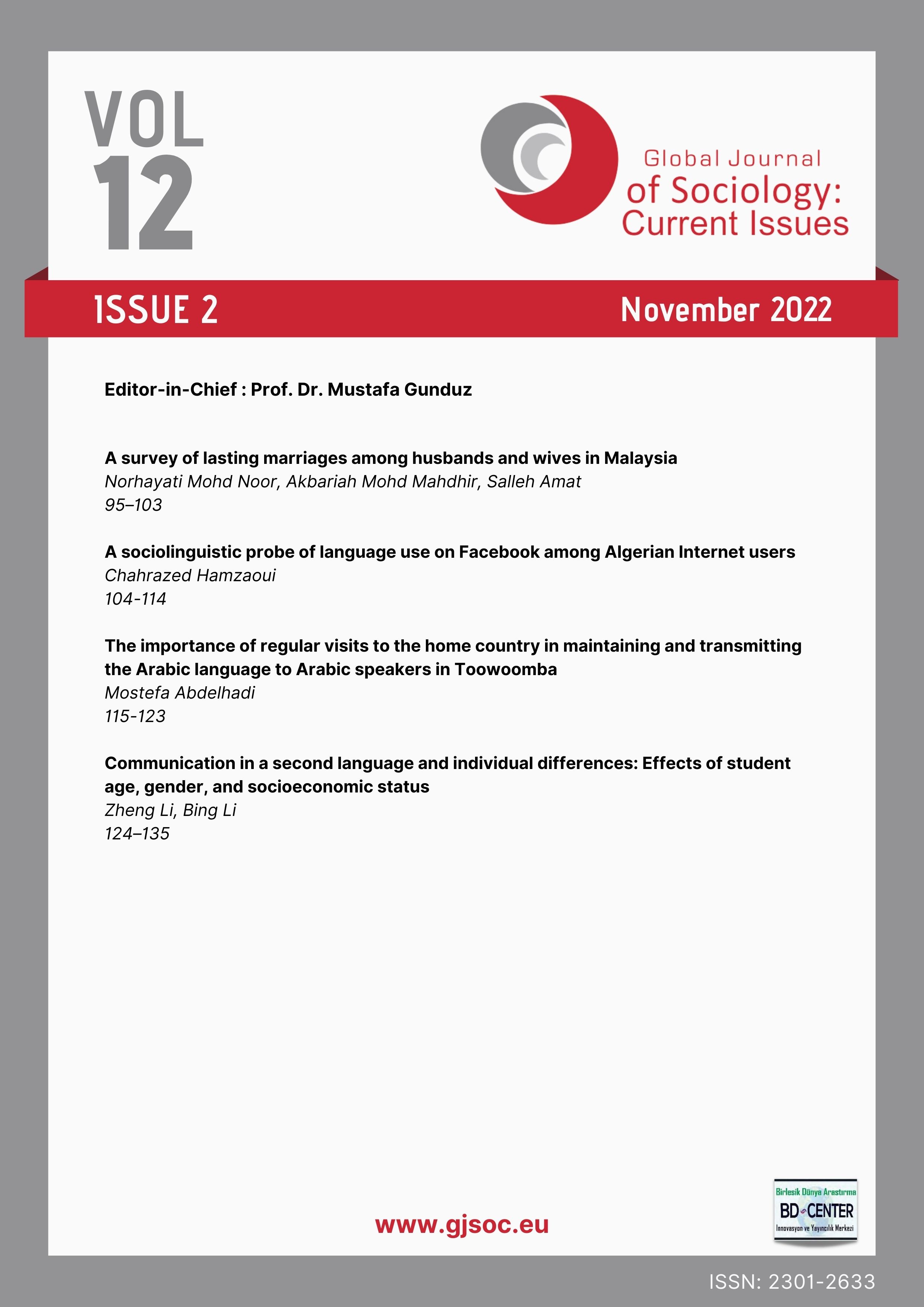A sociolinguistic probe of language use on Facebook among Algerian Internet users
Main Article Content
Abstract
As Facebook has tremendously evolved into one of the best-liked ways of communication on the Internet, language has also been enticed in terms of its use and practices. This paper aims to raise its issue in the multilingual Arabic–French–English Facebook posts and comments from three purposely selected groups, comprising 40 participants each. The data were collected via an online questionnaire to explore the language(s) or language varieties used by the members in concordance with code-switching as a sociolinguistic phenomenon and the reasons behind such behaviour in online written discourse. The data were analysed through a mixed methods approach. The findings revealed that the participants of each selected group use a specific language or language that varies depending on the group membership, the language of the posts and the language they master best. Additionally, it was detected that most of the participants code-switch on Facebook either due to lack of fluency or to facilitate socialising.
Keywords: Code-switching, comments, Facebook, Internet users, language, posts;
Downloads
Article Details

This work is licensed under a Creative Commons Attribution 4.0 International License.
Authors who publish with this journal agree to the following terms:- Authors retain copyright and grant the journal right of first publication with the work simultaneously licensed under a Creative Commons Attribution License that allows others to share the work with an acknowledgement of the work's authorship and initial publication in this journal.
- Authors are able to enter into separate, additional contractual arrangements for the non-exclusive distribution of the journal's published version of the work (e.g., post it to an institutional repository or publish it in a book), with an acknowledgement of its initial publication in this journal.
- Authors are permitted and encouraged to post their work online (e.g., in institutional repositories or on their website) prior to and during the submission process, as it can lead to productive exchanges, as well as earlier and greater citation of published work (See The Effect of Open Access).
